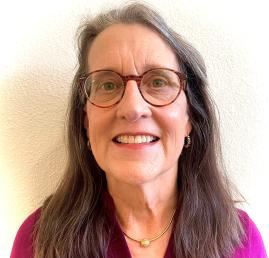Process Safety Boot Camp
Process Safety Boot Camp is CCPS’ flagship course based on CCPS’ Risk Based Process Safety (RBPS) Management approach, featured in the CCPS book Guidelines for Risk Based Process Safety. The Boot Camp covers the fundamental concepts of process safety, why effective process safety management systems are needed, and why process safety is important as an operating principle, not just as a regulatory requirement. The four pillars and twenty elements that define the RBPS approach are examined, which address design, construction, operations, and maintenance of an industrial process. Participants from the chemical, oil and gas, pharmaceutical, foods, metals, mining and other industries will gain the knowledge to improve process safety management practices and build and operate more effective process safety management systems that will fit your company’s needs and resources.
Compliance is not enough. CCPS’ RBPS Approach exceeds regulatory requirements and focuses on the risk that is associated with each operation in order to, protect people, property, and the environment.
This highly interactive, fast-paced course is taught by two process safety experts, each with 25+ years’ experience. Lecture, videos, case studies, discussion, and breakout sessions are featured. An incident (or example) is included with most elements to emphasize the importance of that element and the potential consequences of lacking or inadequate definition or implementation. For selected elements, a workshop, exercise, or discussion follows for participants to analyze the concepts presented and participate in group discussions to facilitate information sharing, understanding, and application of the materials.
Pillars and Elements include:
1. Commit to process safety
- Process Safety Culture
- Compliance with Standards
- Process Safety Competency
- Workforce Involvement
- Stakeholder Outreach
2. Understand hazards and risk
- Process Knowledge Management
- Hazard Identification and Risk Analysis
3. Manage risk
- Operating Procedures
- Safe Work Practices
- Asset Integrity and Reliability
- Contractor Management
- Training and Performance Assurance
- Management of Change
- Operational Readiness
- Conduct of Operations
- Emergency Management
4. Learn from experience
- Incident Investigation
- Measurement and Metrics
- Auditing
- Management Review and Continuous Improvement
View a timed course outline and learning outcomes in the tabs below.
See Process Safety Boot Camp in the News!
Interested in taking this course outside of North America?
Please register for the Foundations of Process Safety course.
This course will be taught by one of the instructors listed below.
Instructor(s)

| AIChE Members & Employees of CCPS Member Companies | $2,415.50 |
| AIChE Grad Student Members | $1,207.50 |
| AIChE Undergrad Student Members |
Horizontal Tabs
Day One
7:30 – 8:00
Registration
8:00 – 8:15
Welcoming Remarks
8:15 – 11:30
- Introduction to Process Safety
- Key Concepts and Anatomy of an Incident
- Loss of Containment (and Prevention/Mitigation)
11:30 – 12:30
Lunch Break
12:30 – 5:00
- Management Systems for Process Safety – a Risk-Based Approach
FIRST FOUNDATION BLOCK – COMMIT TO PROCESS SAFETY
- Element 1: Process Safety Culture
- Element 2: Compliance with Standards
- Element 3: Process Safety Competency
- Element 4: Workforce Involvement
- Element 5: Stakeholder Outreach
Day Two
8:00 – 11:30
FIRST FOUNDATION BLOCK--COMMIT TO PROCESS SAFETY (continued)
- Human Factors
- Element 6: Process Safety Knowledge Management
- Inherent Hazards of Chemicals
- Flammability & Combustibility
- Chemical Reactivity Hazards
- Toxicity
- Corrosivity
11:30 – 12:30
Lunch Break
12:30 – 5:00
- Element 6: Process Safety Knowledge Management (continued)
- Process Plant Design Considerations
- Inherently Safer Design Concepts
- Layout & Spacing
- Overpressure & Vacuum
- Fire Prevention & Mitigation
- Hazardous Area Classification
- Static Electricity, Grounding, Bonding, and Inerting
- Flame & Detonation Arrest
- Fireproofing, Firewalls, and Emergency Isolation
SECOND FOUNDATION BLOCK – UNDERSTANDING HAZARDS & RISKS
- Element 7: Hazard Identification and Risk Analysis (HIRA)
- Hazard Identification
Day Three
8:00 – 11:30
- Element 7: Hazard Identification and Risk Analysis (HIRA) (continued)
- Analyzing Potential Consequences & Impacts
- Estimating Probability
- Risk Analysis, Risk Assessment, and Risk Tolerance
THIRD FOUNDATION BLOCK – MANAGE RISK
- Element 8: Operating Procedures
11:30 – 12:30
Lunch Break
12:30 – 5:00
- Element 9: Safe Work Practices
- Element 10: Asset Integrity and Reliability
- Element 11: Contractor Management
- Element 12. Training and Performance Assurance
Day Four
8:00 – 11:30
THIRD FOUNDATION BLOCK—MANAGE RISK (continued)
- Element 13: Management of Change
- Element 14 Operational Readiness
- Element 15: Conduct of Operations
- Element 16: Emergency Management
11:30 – 12:30
Lunch Break
12:30 – 5:00
FOURTH FOUNDATION BLOCK—LEARN FROM EXPERIENCE
- Element 17: Incident Investigation
- Element 18: Measures and Metrics
- Element 19: Auditing
- Element 20: Management Reviews and Continuous Improvement
Please email questions to academy@aiche.org .
Login Times Before Virtual Class Sessions Begin:
- Day 1: Login at 9:00 AM Eastern time zone USA for testing connection and short review of features of virtual classroom controls/features before class start at 9:15 AM Eastern time
- Days 2 through 5: Login at 9:10 AM Eastern time zone USA to verify or resolve any connection issues before class start at 9:15 AM Eastern time.
Virtual Classroom Schedule:
- Daily Class Starting Time-- 9:15 AM Eastern Time USA class each session
- 10-minute break typically between 10:30 and 11:00 AM Eastern time zone USA
- 30-minute break from ~ noon to 12:30 PM Eastern time zone USA
- Two 10-minute breaks in afternoon
- Daily Class Ending Time-- 5:30 PM Eastern time zone USA class for Days 1 through 4 and by ~ 4PM on Day 5
|
Note: Sessions 1 through 5 focus on the first two Foundation Stones of RBPS:
Understanding Hazards and Risk (Elements 6-7)—Process Knowledge Management & Hazard Identification & Risk Analysis (HIRA) |
|
| Session | Agenda Topics |
| 1 |
COMMIT TO PROCESS SAFETY
Session 1 Quiz |
| 2 |
UNDERSTAND HAZARDS AND RISK
Session 2 Quiz |
| 3 |
COMMIT TO PROCESS SAFETY (continued)
UNDERSTAND HAZARDS AND RISK (continued)
Session 3 Quiz |
| 4 |
COMMIT TO PROCESS SAFETY
Two Process Safety Culture Moments
Two Process Safety Culture Moments
Understand Hazards & Risk (Elements 6 & 7 continued):
A Process Safety Culture Moment Understand Hazards & Risk (Elements 6 & 7 continued):
Session 4 Quiz |
| 5 |
Understand Hazards & Risk (Elements 6 & 7 continued):
A Process Safety Culture Moment Understand Hazards & Risk (Elements 6 & 7 continued):
A Process Safety Culture Moment Understand Hazards & Risk (Elements 6 & 7 continued):
Session 5 Quiz |
|
Note: Sessions 6 through 8 focus on Human Factors and the last two Foundation Stones of RBPS:
LEARN FROM EXPERIENCE (Element 17 -20)—Incident Investigation, Measurement & Metrics, Auditing & Management Review & Continuous Improvement |
|
| 6 |
Understand Hazards and Risk (Elements 6 & 7 completed):
A Process Safety Culture Moment MANAGE RISK
Session 6 Quiz |
| 7 |
MANAGE RISK (continued)
A Process Safety Culture Moment MANAGE RISK (continued)
LEARN FROM EXPERIENCE
Session 7 Quiz |
| 8 |
LEARN FROM EXPERIENCE (continued)
A Process Safety Culture Moment LEARN FROM EXPERIENCE (completed)
MANAGE RISK (completed)
CAPSTONE GROUP EXERCISE Session 8 Quiz Course Closing Comments and Online Course Evaluation by Attendees |














